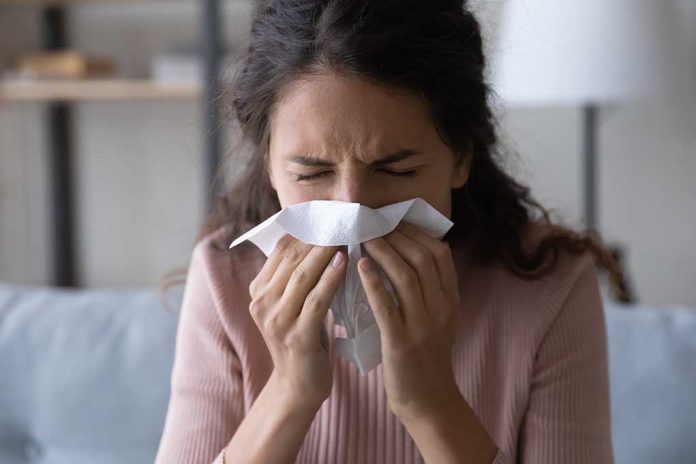
Hawaii’s paradise is plagued by a dangerous resurgence as whooping cough cases surge past 108, creating a critical health risk for unvaccinated children and travelers amidst declining vaccination rates across the state.
Key Takeaways
- Hawaii has reported 108 cases of whooping cough this year, significantly higher than last year’s total of 84 cases
- Pertussis (whooping cough) can cause life-threatening complications, especially in infants and unvaccinated children
- Vaccination rates in Hawaii have fallen below national averages since 2019, increasing vulnerability to outbreaks
- Health officials strongly recommend DTaP or Tdap vaccines for all age groups, including pregnant women in their third trimester
- Hawaii is also monitoring measles risks with over 1,000 cases reported across 30 mainland states
Dangerous Respiratory Illness Surges in Popular Tourist Destination
The Hawaii Department of Health has sounded the alarm as pertussis cases have skyrocketed to 108 by mid-May, already surpassing last year’s total of 84 cases. This highly contagious respiratory disease, commonly known as whooping cough, spreads through airborne droplets when infected individuals cough or sneeze. The disease initially presents with cold-like symptoms but can rapidly progress to severe coughing fits that produce the characteristic “whooping” sound in children when they struggle to breathe after coughing episodes.
“Pertussis is a highly contagious respiratory disease spread through the air via the coughs or sneezes of an infected person. Initially, the symptoms resemble a cold but can progress to intense coughing fits. In children, coughing fits can be followed by a deep breath that makes a whooping sound,” According to the Hawaii Department of Health.
Vaccination Rates Falling as Disease Risk Rises
Health authorities have identified a concerning trend: Hawaii’s vaccination rates have steadily declined since 2019, dropping below national averages. This decline creates perfect conditions for disease outbreaks, as community immunity weakens. The timing is particularly troubling as the state deals with this pertussis surge while simultaneously monitoring for potential measles cases. Although no new measles cases have appeared in Hawaii since two travel-related cases in April, officials remain vigilant with over 1,000 measles cases reported across 30 mainland states.
“DOH recommends continued vigilance and efforts to increase the MMR (measles, mumps and rubella) vaccination rate. High vaccination rates protect individuals and communities and prevent cases from becoming outbreaks.”
Infants and Young Children Face Greatest Danger
Medical experts emphasize that pertussis poses particularly severe risks for infants under one year of age, who face the highest hospitalization rates if infected. Complications can include pneumonia, seizures, brain damage (encephalopathy), and in the most severe cases, death. What makes this outbreak especially concerning is that pertussis can be difficult to diagnose in its early stages, often being mistaken for other respiratory illnesses, delaying treatment and allowing for further spread of the disease.
“Pertussis is insidious and can be easily mistaken for other respiratory diseases, including viruses,” Said Dr. Marc Siegel.
The deceptive nature of pertussis means many carriers may not realize they are infected until the disease has progressed significantly. By that point, they may have exposed numerous others, creating a chain of transmission that becomes increasingly difficult to contain. This underscores the critical importance of preventative measures rather than relying on treatment after infection occurs.
Vaccination Provides Strong Protection
Health officials emphasize that vaccination remains the most effective defense against pertussis. The DTaP vaccine series is recommended for children, while the Tdap booster is advised for adolescents and adults. The protection offered by these vaccines is substantial, particularly when vaccination rates are high enough to create community immunity that shields even those who cannot be vaccinated for medical reasons.
“The DTaP (diphtheria, tetanus, pertussis) vaccine offers strong protection to children — about 98 out of 100 children are protected for at least a year after the fifth dose, and about 70% are still protected for up to five years,” Stated Dr. Neha Pathak.
Health officials specifically recommend that pregnant women receive the Tdap vaccine during their third trimester with each pregnancy. This strategy not only protects the mother but also passes antibodies to the unborn child, providing crucial protection during the vulnerable first months of life before the infant can receive their own vaccinations. For families with newborns, ensuring that all household members and caregivers are vaccinated creates a protective “cocoon” around the baby.



